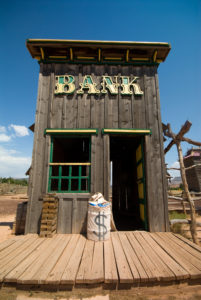Types Of SEC Whistleblower Cases: High Yield Investment Program Scams and Prime Bank Frauds
A
High Yield Investment Program (“HYIP”, also known as a “Prime Bank Program” or “Prime Bank Financial Instrument”) is an investment scheme in which the perpetrators claim to provide 100%+ annual returns to their stakeholders. In fact, HYIPs are typically little more than
Ponzi schemes designed to look like highly lucrative, predominantly international investment opportunities. The SEC actively investigates these types of scams.
What Is A High Yield Investment Program?

In typical HYIP frauds, there are no “banks” involved and no “programs” in place. The “investments” being offered are purely fictitious.
In a High Yield Investment Program scheme, profits are not validly achieved from investing in legitimate opportunities and producing profitable returns. If “investment returns” are paid to current or older investors, they are usually made from funds unknowingly contributed to the scheme by new investors. However, often the scheme makes no investment payments or returns at all.
The promoters of the scam simply recruit as many investors as possible and, when the fictitious investment period expires, they disappear with the money.
Where The “Prime Banks” Come In

Organizers of a High Yield Investment Program entice investors by promising outlandish guaranteed returns. This is most often accomplished by creating fabricated “prime banks”, usually overseas. The scammers claim that these are highly exclusive institutions that do not promote themselves because they only provide services to the most wealthy and sophisticated clients, who do not want their business known to the general public and therefore require extreme secrecy.
In order to bolster the appearance of “legitimacy” around these programs, the organizers usually create excessive levels of complexity around the investment. They typically claim that the investment program is too complicated to even explain, which is why they supposedly can only be transacted by the most exclusive, sophisticated “prime banks” in the world. The fraudsters often enhance this image of exclusivity by claiming that the banks are located in known wealthy international banking centers, such as Switzerland, Gibraltar, The Cayman Islands, or Hong Kong.
A High Yield Investment Program fraud can give rise to an SEC whistleblower case without a prime bank component. But where there is a “Prime Bank” fraud, it is almost always part of a HYIP.
SEC Whistleblowers Can Play An Important Role In Uncovering High Yield Investment Programs
If a High Yield Investment Program is not caught early enough, it can often be difficult for the Government to catch the fraudsters and/or recoup any of the money taken from investors. Because little information is provided to investors, and the “prime banks” are typically set-up in foreign jurisdictions, when they collapse the perpetrators will have most likely taken most the money for themselves and moved on to another international location. Investors, who are still unknowingly caught up in the HYIP when it collapses or simply disappears, can lose everything.
It can be difficult for a potential SEC whistleblower to decide whether certain conduct that they have information about is a good candidate for an SEC whistleblower case. Often, a High Yield Investment Program scam or Prime Bank fraud is not obvious to detect from the outside. People who have information about HYIP scams or Prime Bank frauds can play significant roles in getting SEC whistleblower cases started.
Additional Information
For more information on high yield investment programs, click on the link below:
 In typical HYIP frauds, there are no “banks” involved and no “programs” in place. The “investments” being offered are purely fictitious.
In a High Yield Investment Program scheme, profits are not validly achieved from investing in legitimate opportunities and producing profitable returns. If “investment returns” are paid to current or older investors, they are usually made from funds unknowingly contributed to the scheme by new investors. However, often the scheme makes no investment payments or returns at all.
The promoters of the scam simply recruit as many investors as possible and, when the fictitious investment period expires, they disappear with the money.
In typical HYIP frauds, there are no “banks” involved and no “programs” in place. The “investments” being offered are purely fictitious.
In a High Yield Investment Program scheme, profits are not validly achieved from investing in legitimate opportunities and producing profitable returns. If “investment returns” are paid to current or older investors, they are usually made from funds unknowingly contributed to the scheme by new investors. However, often the scheme makes no investment payments or returns at all.
The promoters of the scam simply recruit as many investors as possible and, when the fictitious investment period expires, they disappear with the money.
 Organizers of a High Yield Investment Program entice investors by promising outlandish guaranteed returns. This is most often accomplished by creating fabricated “prime banks”, usually overseas. The scammers claim that these are highly exclusive institutions that do not promote themselves because they only provide services to the most wealthy and sophisticated clients, who do not want their business known to the general public and therefore require extreme secrecy.
In order to bolster the appearance of “legitimacy” around these programs, the organizers usually create excessive levels of complexity around the investment. They typically claim that the investment program is too complicated to even explain, which is why they supposedly can only be transacted by the most exclusive, sophisticated “prime banks” in the world. The fraudsters often enhance this image of exclusivity by claiming that the banks are located in known wealthy international banking centers, such as Switzerland, Gibraltar, The Cayman Islands, or Hong Kong.
A High Yield Investment Program fraud can give rise to an SEC whistleblower case without a prime bank component. But where there is a “Prime Bank” fraud, it is almost always part of a HYIP.
Organizers of a High Yield Investment Program entice investors by promising outlandish guaranteed returns. This is most often accomplished by creating fabricated “prime banks”, usually overseas. The scammers claim that these are highly exclusive institutions that do not promote themselves because they only provide services to the most wealthy and sophisticated clients, who do not want their business known to the general public and therefore require extreme secrecy.
In order to bolster the appearance of “legitimacy” around these programs, the organizers usually create excessive levels of complexity around the investment. They typically claim that the investment program is too complicated to even explain, which is why they supposedly can only be transacted by the most exclusive, sophisticated “prime banks” in the world. The fraudsters often enhance this image of exclusivity by claiming that the banks are located in known wealthy international banking centers, such as Switzerland, Gibraltar, The Cayman Islands, or Hong Kong.
A High Yield Investment Program fraud can give rise to an SEC whistleblower case without a prime bank component. But where there is a “Prime Bank” fraud, it is almost always part of a HYIP.







